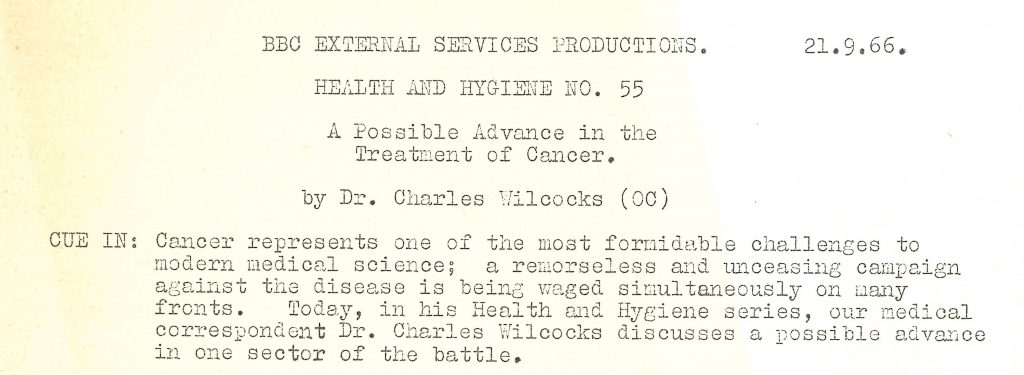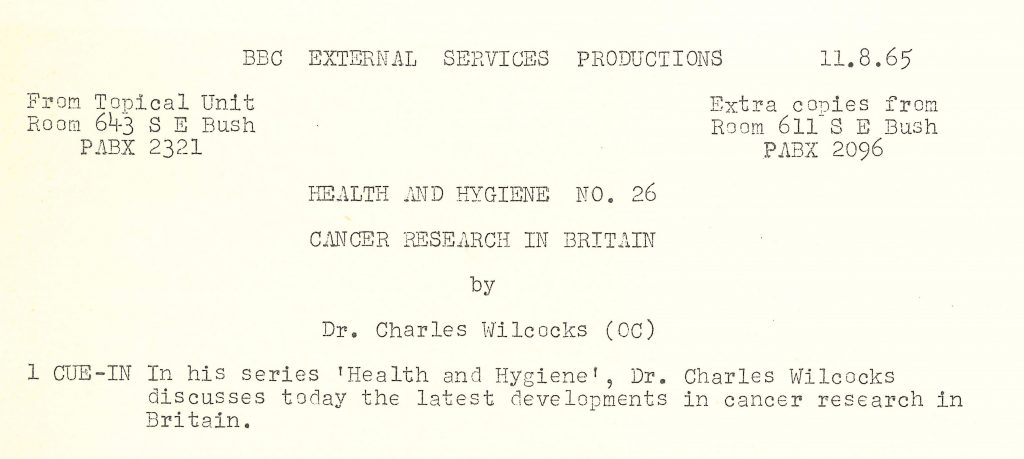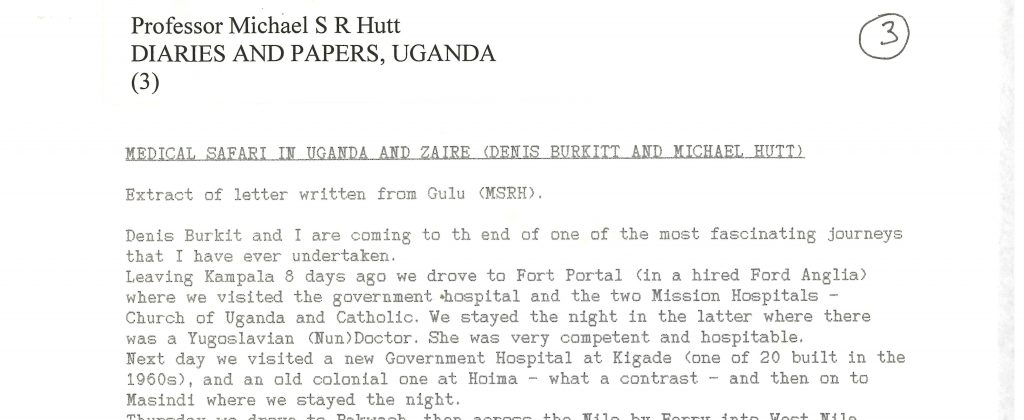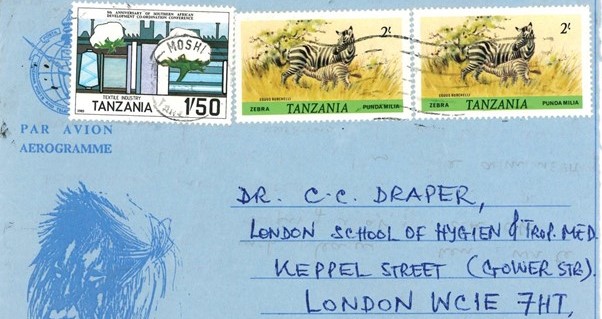World Cancer Day is an international day marked on 4th February to promote a positive and proactive approach towards the prevention, detection and treatment of cancer.
To mark the day, LSHTM Archives are highlighting some items within our collection relating to cancer.
Dr Christopher Draper collection
Dr. Christopher Charles Gawler Draper (1921–2006) studied medicine at New College, Oxford, and was involved in early penicillin trials before earning a Diploma in Public Health at LSHTM. He worked at LSHTM as a lecturer, conducted malaria research in East Africa, and later became deputy director of the West African Council Unit, where he contributed to virology studies. Returning to LSHTM in 1969 as a senior lecturer, Draper led extensive global research on malaria, tropical diseases, and sero-epidemiology, serving on WHO advisory committees and pioneering ELISA testing.
Between 1981-86 Dr Christopher Draper undertook a study of Burkitt’s Lymphoma (a rare, fast-growing B-cell non-Hodgkin’s lymphoma) in the Mara region of Tanzania. We hold data, reports & correspondence from the study.


TUC Centenary Institute of Occupational Health
The TUC Centenary Institute of Occupational Health was established at LSHTM with TUC funding in July 1968. It was headed by Professor Richard Schilling and was responsible for teaching, research and providing an information and advisory service to industry on occupational health and hygiene.
The Institute focused some of its early research on occupational health and cancer. A significant study examined asbestosis among factory workers, using clinical, x-ray, and lung function tests to evaluate early detection methods. The Institute also highlighted the long-term effects of asbestos exposure, linking it to increased mortality from lung cancer and mesothelial tumours. Concurrently, Professor E. Boyland investigated nitrosamines, toxic substances initially identified through occupational exposure, under a Ministry of Agriculture-sponsored project. Additionally, in collaboration with the Medical Women’s Federation, the Institute launched a comprehensive study into ovarian cancer, utilizing detailed questionnaires completed by over 40 gynecologists to explore potential etiological factors.

Dr Charles Wilcocks collection
Dr Charles Wilcocks (1896-1977) was a former student of LSHTM and was the Director of the Bureau of Hygiene & Tropical Disease which was based at the School for a time. The Archives holds his collection which includes radio scripts for the various shows that he contributed to including Doctor in the House for the BBC in the 1960s, these cover all types of medical conditions including cancers.


Sir Ronald Ross collection
Sir Ronald Ross (1857-1932), best known for his work on malaria, also expressed a keen interest in addressing other major diseases. Among the items in our collection are press cuttings that captures his perspective on cancer research. In a 1922 letter, Ross voices his support for Lord Atholstan and Sir William Veno’s initiative to offer a substantial prize for the discovery of “a cure for cancer.”
While critics argued that such funds would be more effectively spent on subsidising laboratories, Ross saw the prize as a powerful motivator for advancing research. He believed it could inspire more practitioners—particularly those already working closely with cancer patients—to join what he described as “the army of attack” against the disease, ultimately aiding in “attaining the final victory.” Ross further emphasized that many significant medical breakthroughs throughout history were made by amateurs, asserting that “every possible method” should be employed to encourage their contributions to the search for a cure.

Professor Michael Stewart Rees Hutt collection
The Archives house a small collection of papers on Professor Michael Stewart Rees Hutt (1922–2000), who served as Professor of Pathology at Makerere University College in Kampala, Uganda, from 1962. During his time in Uganda, Hutt implemented a nationwide postal pathology system, ensuring that remote hospitals received timely and meaningful diagnoses. He also played a key role in establishing one of the few high-quality cancer registries in tropical regions and contributed significantly to advancing medical research.
In the mid-1960s, Hutt and Dennis Burkitt undertook a road safari across mission and government hospitals in Uganda and eastern Zaire (now the Democratic Republic of the Congo), collecting data on cancer incidence. Their research, which covered illnesses such as Burkitt’s lymphoma, oesophageal cancer, and liver cancer, highlighted the striking variability of cancer as a disease. The collection includes Hutt’s diaries and papers from his time in Uganda, providing further insight into his work in pathology and cancer research.

LSHTM Archives will be displaying a selection of material at the upcoming film screening of ‘Burkitt’ in the Manson Lecture Theatre on Tuesday 25 February 2025 (17:30 – 20:00).
You can learn more about the event here.







